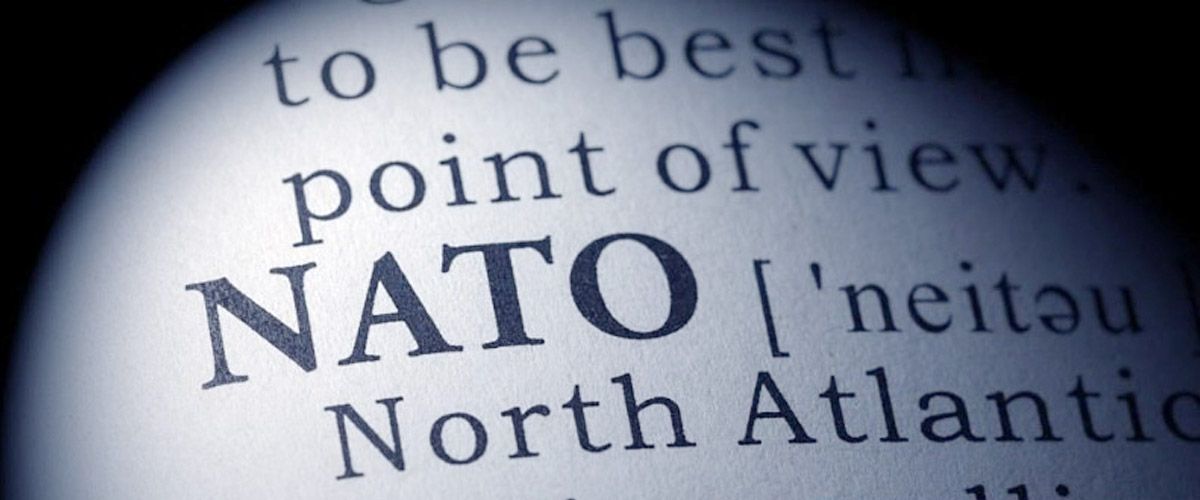Ganadores del concurso (2024)

Marina Puchal Mejías
Universidad de Valencia
Navigating the Geopolitical Landscape: Addressing the Rise of China within the NATO Framework
In an era characterized by shifting geopolitical dynamics, the rise of China stands as a central for NATO allies. This essay explores the implications of China’s ascendance and its strategic partnership with Russia within the context of NATO’s security framework. By analyzing the evolving geopolitical landscape, we can identify potential challenges and propose proactive measures to safeguard international norms and maintain global stability.
The geopolitical landscape has witnessed a significant tranformation with the rise of China as a global power. China’s assertive foreign policy, economic influence, and military modernization efforts pose multifaced challenges to the existing international order. Furthermore, the strategic alignment between China and Russia amplifies concerns regarding the erosion of norms and the balance power.
China’s expanding military capabilities, coupled with its assertive behavior in the South China Sea and beyond, have raised alarm bells among NATO allies. The construction of artificial islands, militarization of disputed territories, and assertive naval maneuvers challenge the principles of freedom of navigation and international law. Moreover, China’s Belt and Road Initiative (BRI) and economic investments in strategic regions have raised concerns about debt-trap diplomacy and influence projection.
In parallel, Russia’s assertive actions in Crimea, Eastern Ukraine, and Syria, coupled with its efforts to undermine democratic processes and instructions, further complicate the geopolitical landscape. The strategic partnership between China and Russia, reaffirmed amidst geopolitical tensions, adds a new dimension to NATO’s security calculs. Joint military exercises, technological cooperation, and diplomatic alignment between Beijing and Moscow challenge the unity and cohesion of NATO allies.
Challenges to NATO’s Security Paradigm:
China’s expanding military capabilities, coupled with its assertive behavior in the South China Sea and beyond, present complex security dilemmas for NATO allies. The growing interoperability between Chinese and Russian forces through joint military exercises raises questions about NATO’s ability to effectively respond to potential threats in the Euro-Atlantic region and beyond. Moreover, the nexus between economic interdependence and security vulnerabilities underscores the need for a comprehensive approach to address emerging challenges.
The rise of China within the NATO framework requires a reassessment of traditional security paradigms and threat perceptions. While NATO’s primary focus has historically been on deterring conventional military threats, the emergence of non-traditional security challenges, such as cyberattacks, disinformation campaigns, and economic coercion, necessities a holistic approach to security.
Charting a Path Forward:
In response to the evolving security landscape, NATO must adopt a proactive and adaptable approach to safeguard its collective security interests. First and foremost, NATO allies should prioritize enhancing strategic awareness and intelligence-sharing mechanisms to effectively monitor and assess China’s evolving capabilities and intentions. Additionally, bolstering military deterrence through enhanced interoperability, defense capabilities, and resilience-building measures is imperative to counter potential challenges posed by China’s geopolitical ambitions.
Promoting Multilateral Engagement and Diplomacy:
While recognized the importance of deterrence, NATO should also prioritize engagement and dialogue with China and Russia to mitigate the risk of miscalculation and escalation. Diplomatic channels should be leveraged to foster transparency, confidence-building measures, and crisis management mechanisms to prevent unintended conflicts. Moreover NATO’s engagement with regional partners and international organizations should be strengthened to address shared security challenges and promote rules-based order in the face of evolving geopolitical dynamics.
On a final note, the rise of China and its strategic partnership with Russia present complex vhallenges for NATO’s security paradigm. By adopting a proactive and adaptive approach, NARO can effectively navigate the evolving geopolitical landcape and safeguard international norms and stability. Through strategic awareness, enhanced deterrence, and multilateral engagement, NATO can uphold its collective security interests and promote a rules-based international order in the face of emerging and uncertainties.





